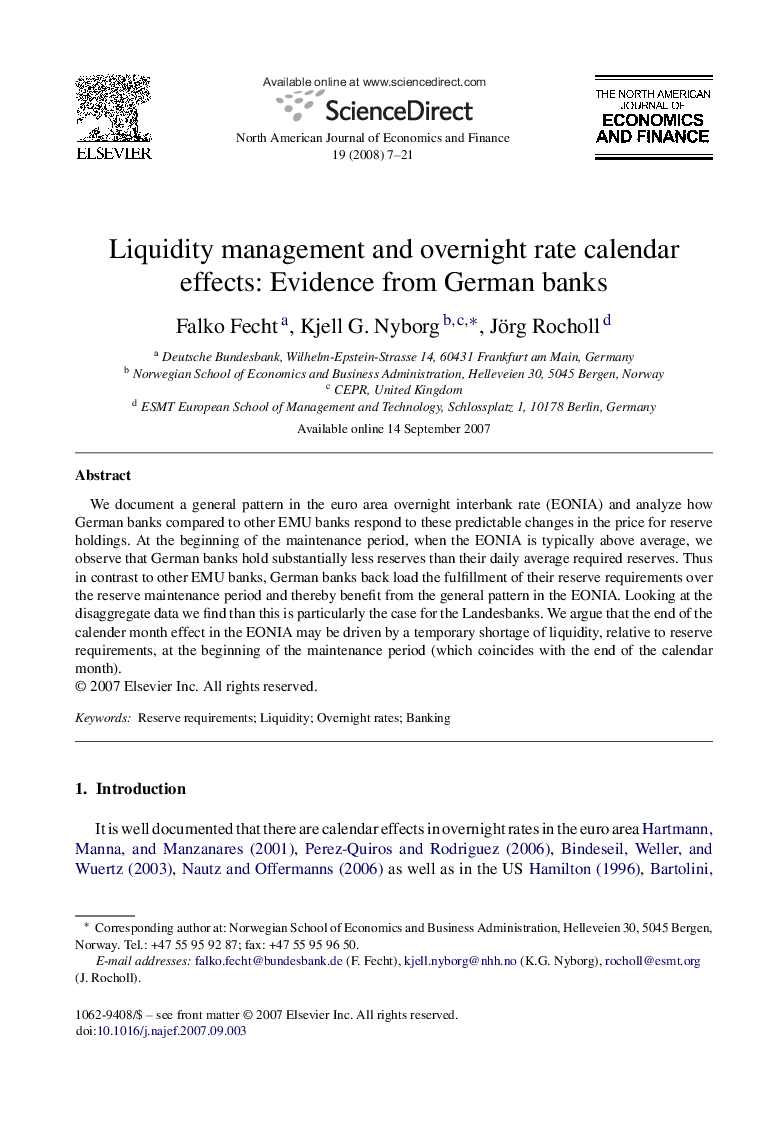| Article ID | Journal | Published Year | Pages | File Type |
|---|---|---|---|---|
| 972707 | The North American Journal of Economics and Finance | 2008 | 15 Pages |
We document a general pattern in the euro area overnight interbank rate (EONIA) and analyze how German banks compared to other EMU banks respond to these predictable changes in the price for reserve holdings. At the beginning of the maintenance period, when the EONIA is typically above average, we observe that German banks hold substantially less reserves than their daily average required reserves. Thus in contrast to other EMU banks, German banks back load the fulfillment of their reserve requirements over the reserve maintenance period and thereby benefit from the general pattern in the EONIA. Looking at the disaggregate data we find than this is particularly the case for the Landesbanks. We argue that the end of the calender month effect in the EONIA may be driven by a temporary shortage of liquidity, relative to reserve requirements, at the beginning of the maintenance period (which coincides with the end of the calendar month).
